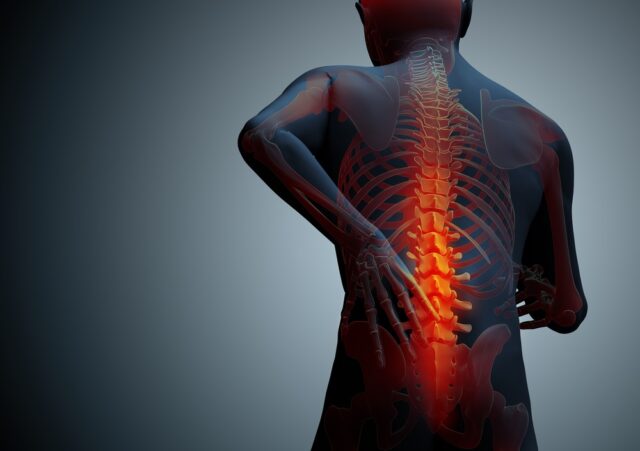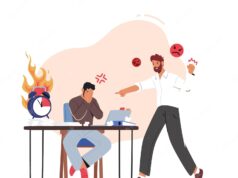
While we all know that a physical injury affects physical health, it can be just as impactful on one’s mental health. Whether you were injured on the operating table or at home, it’s still likely to hurt your psychological well-being. As shared by the U.S. Bureau of Labor Statistics, approximately 38,600 surgeons currently work in the United States. With that many physical health professionals, it’s not hard to find someone to mend your physical body when it’s broken. However, the mental scars often require a different kind of care. Even as physical wounds heal, psychological ones can linger. Engaging with therapists or counselors after an injury can be just as crucial as visiting surgeons. Both forms of healing are essential for comprehensive recovery.
Depending on where you live, finding mental health professionals can be difficult. After an injury, you may be tempted to focus on how it affects your physical health. Tending to one’s mental health is a vital aspect of recovering from an injury, too. Just because your brain wasn’t affected on a physical level by an injury doesn’t mean that your mental health wasn’t harmed in some way. Mental repercussions can manifest in myriad ways, such as anxiety, depression, or PTSD. Neglecting these symptoms can hinder overall recovery and impact daily functioning. Seeking out resources or support groups can be instrumental in understanding and addressing these challenges. Remember, just because an injury is invisible doesn’t make its effects any less real.
Loss of Productivity

For some folks, feeling productive and getting up to go to work every day can be a boost for mental health. If you were hurt on the job, you may find that your mental health is impacted by an inability to go back to work. If your doctor has recommended that you stay out of work for a couple of weeks, it may be about your financial health as well as your physical health.
If your employer has Personal Injury Protection coverage, their policy probably requests that a physician prohibits you from working for 14 days. This will ensure that insurance will be obligated to reimburse for wage loss. While this may be necessary, it can give you the blues and make your mental health suffer from a lack of purpose. If it’s temporary, it’s best to keep that in perspective. If you can remember that it won’t always be like this, it’ll be easier to maintain your mental well-being.
Engaging in alternative productive activities, like reading or learning a new skill, can help fill the void. Connecting with others in similar situations can offer support and understanding. Setting small daily goals can provide a sense of achievement, mitigating feelings of idleness. While the road to recovery might be long, every step counts towards holistic healing.
Injuries Can Trigger Avoidance
When you were injured, you may notice that you avoid certain situations due to the trauma. For example, if you were injured in a car accident, you might develop an avoidance of driving or even riding in cars. Subconsciously, it can feel safer to steer clear of the trigger. However, this can have dire consequences for your mental health.
On top of limiting your life and shrinking your experiences, avoidance can breed further anxiety. This can develop into an anxiety disorder if left unchecked. If you were injured in a car accident, you’re not alone. As Just Great Lawyers points out, an excess of 2.3 million individuals arrive at the hospital from injuries related to an automobile annually. The good news is that even if you did experience this common source of injury, you can recover on a psychological level. If you or your family observes that you tend to stay away from triggers, it may help to see a mental health professional to slowly reintroduce you to that trigger or work on coping skills so that you can return to a full, healthy existence.
If you were injured on the job, you may find yourself avoiding your work environment or getting anxious every time you have to clock in for a shift. Although it’s normal to experience some nerves when you return to the place where you were injured, you should see a mental health professional if the anxiety prevents you from assuming your routine and duties. Although it can be hard to ask for help, it’s necessary if you want to truly heal from this experience and move forward.
Emotional Distress and Anxiety

The aftermath of an injury extends beyond the realm of physical hurt. Along with the pain, emotional and psychological distress can often creep into one’s life. There’s a heightened sense of anxiety that usually accompanies an injury. This anxiety can be fueled by uncertainties about recovery time, potential complications, and long-term implications of the injury. For instance, the fear of permanent disability, chronic pain, or not being able to return to a cherished activity can be overpowering. Injuries resulting from traumatic events can further complicate the emotional landscape. Such events might be replayed mentally, resulting in anxiety spikes or even conditions like post-traumatic stress disorder (PTSD). Furthermore, navigating medical appointments, insurance, and possibly legal issues can exacerbate this emotional turmoil.
Impact on Self-Esteem and Self-Worth
Injuries can radically alter one’s perception of themselves. Especially if there’s a change in physical appearance or a decrease in physical capabilities, one’s self-esteem might take a significant hit. In a society that often places immense value on physical prowess and appearance, injuries can make one feel inferior or less valuable. This can be even more pronounced if an individual is temporarily or permanently unable to engage in activities that once defined their identity. These feelings of inadequacy or being ‘broken’ can erode one’s confidence, leading to a compromised sense of self-worth and even feelings of guilt or shame.
Social Isolation and Loneliness
Social connectivity plays a pivotal role in one’s mental well-being. Injuries, however, often necessitate a reduction in social interactions. The reasons can range from hospital stays, long bed rest periods, rehabilitation, or simply decreased mobility. This sudden change can thrust an individual into a state of isolation. Over time, this lack of social engagement can snowball into feelings of loneliness. Moreover, as friends and acquaintances continue with their routines, the injured person might feel left behind or overlooked. There’s also the underlying sentiment that those untouched by similar experiences cannot truly empathize, further widening the emotional chasm and creating a sense of alienation.
Coping with Chronic Pain

In some unfortunate instances, an injury might be the onset of chronic pain. Continual discomfort becomes an unwelcome companion, and managing this pain can be mentally exhausting. Studies have repeatedly shown a link between chronic pain and a range of mental health issues, including depression, anxiety, and mood disorders. The pain can disrupt essential life routines, especially sleep, resulting in additional challenges like fatigue, irritability, and cognitive dysfunction. Over a more extended period, as the pain becomes a relentless part of life, feelings of despair and hopelessness can set in. This emotional toll, combined with the physical pain, can be debilitating, severely affecting one’s overall well-being and zest for life.
Financial Strain and Stress
The economic ramifications of an injury are often overlooked, but they play a crucial role in affecting an individual’s mental health. From medical bills to potential loss of income due to decreased working hours or inability to work at all, the financial implications can be significant. The constant worry about how to manage these expenses, especially in the absence of adequate insurance or savings, can lead to overwhelming stress. This stress isn’t just fleeting; it can be persistent, leading to conditions like anxiety disorders or exacerbating existing mental health issues. Furthermore, the uncertainty of future earnings, especially if the injury leads to permanent disability, can cause long-term economic insecurity, further intensifying mental distress.
Dependency and Loss of Independence
One of the most challenging aspects post-injury is the potential dependency on others for basic daily tasks. From personal care to mobility, relying on others can bring about feelings of vulnerability and loss of autonomy. This sudden shift from being independent to dependent can be jarring, leading to feelings of frustration, resentment, or even anger. The inability to carry out routine tasks, which were once second nature, can lead to feelings of inadequacy. Over time, this dependency can erode one’s sense of self-worth and confidence, leading to deeper emotional and psychological issues.
Grieving the Pre-Injury Self

An injury can represent a significant life change, prompting a period of grief. Individuals might mourn their pre-injury lives, reminiscing about the times when they were free of pain, restrictions, or disabilities. This grief is multifaceted, encompassing not just the physical loss, but also the loss of potential opportunities, hobbies, and even relationships. Like any form of grief, this can manifest in various stages, including denial, anger, bargaining, depression, and eventually, acceptance. Without proper support or awareness, navigating this grief can be challenging, with individuals potentially getting stuck in one of the earlier stages, thereby severely affecting their mental health and overall outlook on life.
Final Thoughts
In short, physical injuries can affect emotional and mental health. After an injury, checking in with your doctor about psychological symptoms you notice in addition to physical symptoms from the event can help you stay healthy and safe. It’s better to bring up potential concerns for your healthcare team to monitor than to keep psychological suffering all to yourself. Your mental well-being is as vital as your physical health. Ignoring emotional distress can lead to further complications down the road. Early intervention and open communication can pave the way for a more comprehensive recovery. Always prioritize holistic healing, focusing on both the body and the mind.








